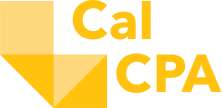In recent years, the accounting profession, like many others, has found itself in the midst of discussions surrounding diversity, equity, inclusion and belonging initiatives. While these efforts aim to create more inclusive workplaces, they have also faced significant pushback from various quarters. As the profession grapples with these challenges, it's essential to understand the nuances, confront the criticisms and chart a path forward toward resilience.
Critics have raised valid concerns about the potential drawbacks of these initiatives, citing fears of undermining meritocratic principles and questioning the legality and morality of certain approaches. Legislative actions in several jurisdictions have added further complexity, casting doubts on the future of DEI implementation. Moreover, resistance to these efforts can take various forms, from outright denial of structural inequalities to disengagement.
Despite these hurdles, the accounting profession has much to gain from embracing DEI wholeheartedly. Research consistently demonstrates that companies with diverse workforces and inclusive cultures outperform their counterparts financially. Moreover, such organizations tend to attract and retain top talent, particularly from younger generations who prioritize diversity and inclusion in their workplace choices.
To build resilience, accounting firms must take proactive steps to address concerns and strengthen their commitment to diversity and belonging. Here are some suggestions for navigating these challenges:
Leadership Commitment and Communication: Firm leaders must demonstrate unwavering support for these initiatives. This commitment should be communicated clearly and consistently across all levels of the organization, emphasizing the importance of diversity and inclusion in achieving the firm's goals and values.
Education and Training: Implement comprehensive DEI training programs for all employees, including leadership teams, that focus on raising awareness about unconscious biases, fostering empathy and providing practical tools for creating more inclusive work environments.
Transparency and Accountability: Establish transparent processes for tracking and reporting progress on DEI initiatives. Set measurable goals and hold leaders accountable for achieving them. Regularly review and assess the effectiveness of DEI efforts, making adjustments as needed to ensure continuous improvement.
Fostering Dialogue and Engagement: Create safe spaces for open and honest conversations about diversity and inclusion. Encourage employees to share their experiences, perspectives and concerns, and actively listen to their feedback. Foster a culture of respect and empathy, where everyone feels valued and included.
Partnerships and Collaboration: Collaborate with industry peers, professional associations and community organizations to share best practices, resources and insights. By working together, accounting firms can leverage collective expertise and drive positive change on a broader scale.
Promotion of Diversity in Leadership: Actively promote diversity in leadership positions within the firm. Establish mentorship and sponsorship programs to support the development and advancement of under-represented groups. By cultivating diverse leadership teams, firms can better reflect the communities they serve and foster innovation and creativity.
Continuous Learning and Adaptation: Stay informed about evolving trends, research and best practices in DEI. Embrace a growth mindset and be willing to adapt strategies and approaches based on new insights and feedback. Cultivate a culture of continuous learning and improvement, where experimentation and innovation are encouraged.
While navigating DEI challenges in the accounting profession may seem daunting, it also presents an opportunity for growth and transformation. By embracing diversity and inclusion, and taking proactive steps to address concerns and strengthen commitment, accounting firms can build resilience and create more inclusive and thriving workplaces for all employees.
Florence Holland is founder & principal consultant of ACCESS Consulting Solutions.

